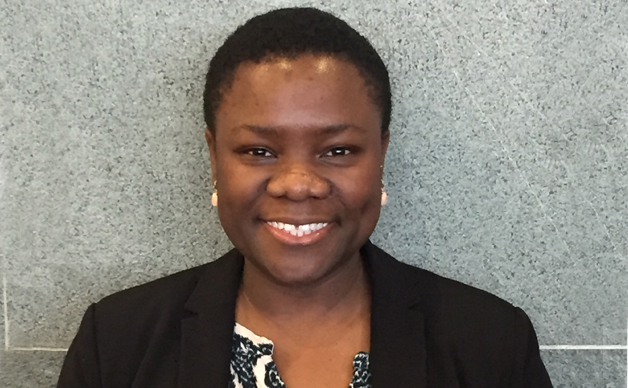Myers 18L named first black Emory Law Journal editor-in-chief

Janiel Myers 18L
Building upon an already stellar 2017, the Emory Black Law Students Association (BLSA), along with the entire Emory Law community, can now boast that Janiel Myers 18L, the chapter’s Academic and Professionalism Success chair, has been named the first black editor-in-chief of the Emory Law Journal, the law school’s oldest publication.
Myers credits the BLSA leadership for encouraging her to participate in the write-on competition: “If it weren’t for the BLSA leadership last year, I probably wouldn't be where I am today. They poured all of their energy and resources to make sure that I (and my classmates) succeeded.” Her own stellar performance, however, is what garnered her the coveted position. Her election demonstrates the evolution of the 65-year-old publication and reflects the depth of talent and breadth of experience within the Emory student body.
“I hope my appointment will have a future impact on the diversity at the law school. I hope that prospective black students and other students of color will see Emory Law as a place of community and inclusion when making their admission decisions,” Myers explained. Robert Schapiro, dean and Asa Griggs Candler Professor of Law, mirrored those sentiments, saying, “Even as we continue our critical efforts to advance both the diversity and inclusiveness of our community, we do well to celebrate Janiel’s achievement. It is an important moment for the law school and for the Journal.”
She will work as a summer associate at Weil, Gotshal & Manges this year, and Jamaican-born Myers (who was recently naturalized as an American citizen) plans to parlay this opportunity, and the rest of her legal education, into a career of service – first as a bankruptcy lawyer and then as a professor and mentor. “Lawyers are given the opportunity to help others in ways that they can't really help themselves. I believe it's important to invest in people the way others invested in me. [Law school] is a tough undertaking, and positive, committed mentors are vital to the success of their mentees. I hope to educate and inspire the minds of future lawyers.”
Myers is humbled by this honor but acknowledges that she is buoyed to the task by her Journal cohort: “People are often saying that they're proud of me for this accomplishment. However, the true praise belongs to my fellow 2L Journal members and the outgoing executive board. They elected me to this position and were the most important agents of diversity and inclusion for the Journal.”
Founded in 1952, the Emory Law Journal was the first journal sponsored by Emory University School of Law. Originally titled the Journal of Public Law, the Journal focused on issues of public law. Its name changed in 1974 to the Emory Law Journal, and its scope widened to include matters of general law, while maintaining an emphasis on public law. In 1978, the Editorial Board decided to abandon an editorial policy emphasizing the publication of pieces that explored the political and sociological aspects of the law. Since then, the Journal has been restricted editorially only by the limits of legal scholarship and interest. Today, ELJ publishes six issues a year, featuring professional and student articles on a broad range of legal topics, and remains entirely student edited.